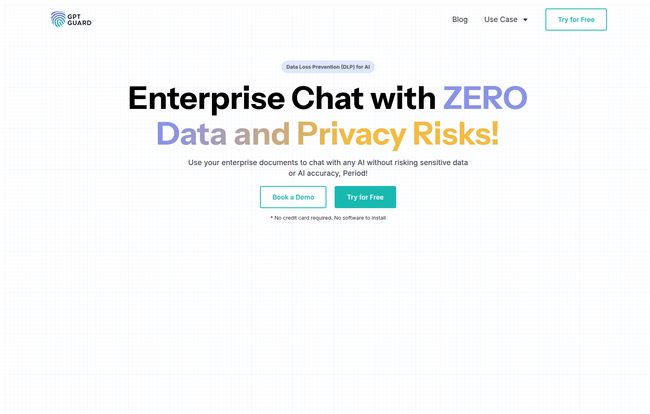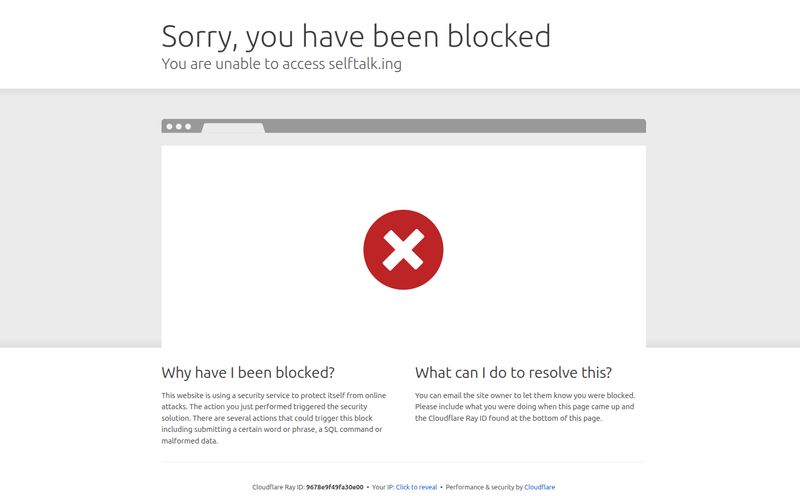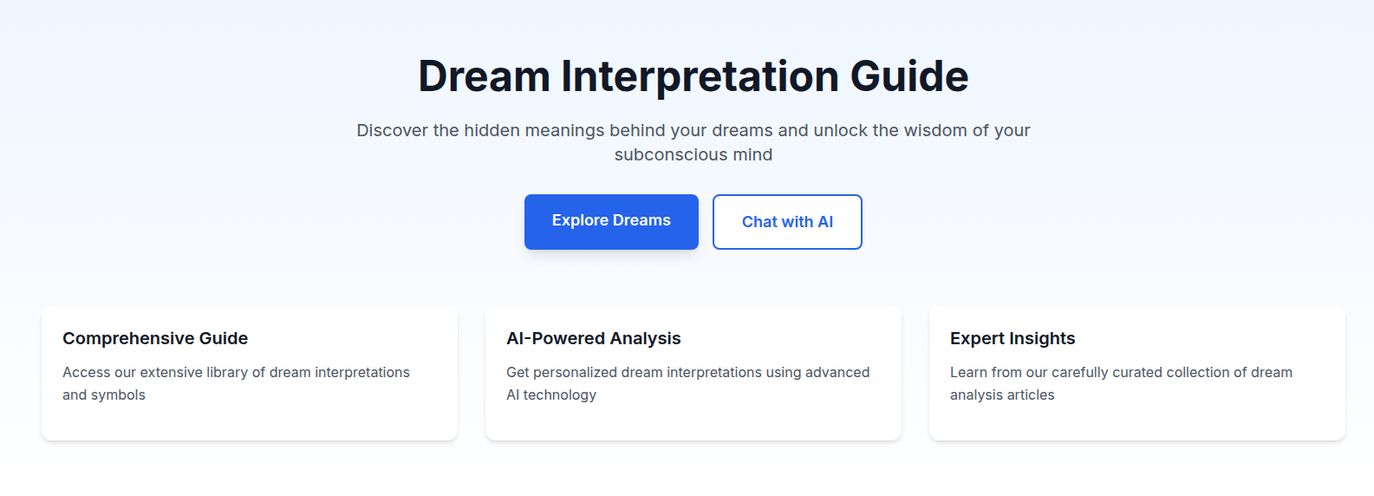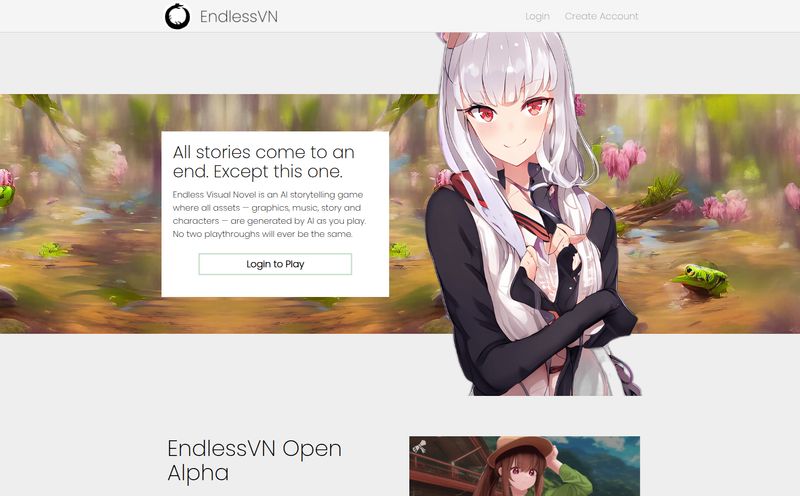The Elephant in the AI Room: Let's Talk About Data Privacy
We're all using AI. If you're in marketing, SEO, or pretty much any digital profession, ChatGPT and its cousins have become the new intern that never sleeps. We use it for brainstorming blog titles, writing social media copy, debugging code snippets… you name it. But there's always that little voice in the back of your head, right? The one that pipes up every time you're about to paste in a chunk of customer feedback or some internal performance metrics.
"Should I be putting this in here?"
That's the million-dollar question. We're caught in this constant tug-of-war between breakneck productivity and the very real, very scary risk of data leaks. I’ve seen some agencies implement blanket “No proprietary data in AI” rules, which feels a bit like buying a Ferrari and only driving it in the school parking lot. You're missing the whole point! So when I stumbled upon a tool called GPT Guard, I have to admit, my curiosity was piqued. A tool that promises you can have your cake and eat it too? Color me interested.
So, What on Earth is GPT Guard?
In the simplest terms, GPT Guard acts like a super-smart bouncer for the data you share with AI. Before your prompt ever reaches the AI model, GPT Guard scans it for sensitive information—think names, addresses, credit card numbers, health information, all that good stuff.
But here's the clever part, and the reason it's not just a simple block or filter. It doesn't just delete the sensitive info. That would be useless, as the AI would lose all the context. Instead, it uses a technique called data masking. Imagine taking a black marker to a confidential document. You can still read the words around the blacked-out parts to understand the overall message. GPT Guard does a digital version of that. It replaces 'John Doe' with '[PERSON_NAME]' and '123 Main St' with '[ADDRESS]'. The AI gets the context it needs to give you an accurate, helpful response, but your confidential data never leaves your sight. It's a beautifully simple solution to a horribly complex problem, all powered by a company called Protecto.ai.

Visit GPT Guard
The Core Features That Actually Matter
I’ve seen a million platforms that promise the world, so I'm always skeptical. But digging into GPT Guard's feature set, a few things really stood out as genuinely useful, not just marketing fluff.
Sensitive Data Masking is the Main Event
This is its bread and butter. The ability to automatically detect and mask Personally Identifiable Information (PII), Payment Card Industry (PCI) data, and Protected Health Information (PHI) is huge. We're talking about everything from social security numbers to patient IDs. For anyone working in finance, healthcare, or even just e-commerce with a ton of customer data, this feature alone is a massive sigh of relief.
It's About Privacy-Preserving Analysis
Here's the thing: hiding data is only half the battle. The real goal is to be able to use that data for analysis without compromising privacy. GPT Guard lets you do that. You can feed it reams of customer support tickets to identify common pain points or analyze sales data to spot trends, all without ever exposing a single customer's personal details to a third-party AI. This moves AI from a fun toy to a serious business intelligence tool.
A Leakproof Chatbot and Secure Environment
The platform is designed to be a secure, contained environment. The homepage talks about a “Leakproof Chatbot,” which is exactly the kind of confidence-inspiring language you want to see. It’s like creating a digital cleanroom or a sandbox where your team can experiment and innovate with AI freely, without the IT and compliance departments having a collective heart attack. This is about building trust in the AI process itself.
Why This is a Game-Changer for SEOs and Marketers
Okay, let's bring this home. Why should someone like me, an SEO guy, care? Because our jobs are drenched in data. I once came this close to pasting a client's entire keyword strategy, complete with internal notes and target URLs, into a public AI tool to ask for headline ideas. I caught myself at the last second, but it was a real wake-up call.
With something like GPT Guard, you could safely:
- Analyze anonymized customer reviews to find recurring keywords and pain points for your SEO strategy.
- Brainstorm ad copy based on real, but masked, customer demographics and purchase history.
- Summarize internal meeting notes about a confidential product launch without leaking the product's name.
It basically removes the human error element from the AI equation, which, let's face it, is often the weakest link in the security chain.
Let's Talk Brass Tacks: The Pricing
No review is complete without talking money. I was pleasantly surprised here. The pricing structure seems pretty logical and caters to different needs. I've put it into a simple table to make it easier to digest.
| Plan | Price | Key Features |
|---|---|---|
| Free | $0 /user/month | Detects & masks PII, 100 prompts per month. |
| Enterprise | $8 /user/month | Detects PII, PCI, & PHI, Unlimited Prompts, AD integration, Private instance option. |
| Enterprise – Protecto APIs | Contact for Price | Everything in Enterprise, plus credentials filtering, audit trails, custom patterns, etc. |
My take? The free plan is genuinely useful. 100 prompts is enough to really kick the tires and see if it works for your workflow. For any serious team or small agency, the $8 Enterprise plan is a no-brainer. The unlimited prompts and broader data detection (PCI and PHI) are essentail for professional use. The peace of mind is easily worth more than two fancy coffees a month.
The Good, The Bad, and The Techy
Nothing is perfect, of course. Based on their site and my own experience with similar tools, here’s my breakdown.
The Good Stuff is pretty obvious. Enhanced privacy is the headline act. Being able to actually use your data for meaningful AI analysis is the encore. And for anyone sweating over regulations like GDPR or CCPA, this is a major compliance win. The free trial is also a huge plus, showing they're confident in their product.
The Not-So-Good Stuff? Well, that "Contact Us" for the top-tier API plan usually means it's not going to be cheap. That's expected for a full enterprise solution, but it's something to be aware of. Also, they mention that implementing custom sensitive data patterns might require some technical chops. This means for most of us, the out-of-the-box solution will be great, but if you have a really unique, proprietary data type you need to mask, you might need to buy your IT guy a coffee to help set it up.
My Final Verdict: Is GPT Guard Worth Your Time?
So, here's the bottom line. In an age where data breaches are a matter of "when," not "if," tools like GPT Guard are quickly shifting from the 'nice-to-have' column to the 'absolutely-must-have' one. It directly addresses the single biggest hesitation businesses have about going all-in on generative AI.
Who is this for? I'd say any organization that handles user data. Marketing agencies, SaaS companies, healthcare providers, financial consultants, legal teams... the list is long. If you're using AI to do more than write poems about your cat, you should probably be looking at a solution like this.
For me, the value proposition is crystal clear. It's a smart, targeted solution that solves a real, pressing problem. It’s an investment in doing business smarter and safer. It's C-Y-A (Cover Your... Assets) for the AI generation.
Frequently Asked Questions
- 1. Is GPT Guard just another VPN?
- Not at all. A VPN hides your IP address and encrypts your internet connection. GPT Guard works at the data level, inspecting the actual text you're sending to an AI and masking sensitive information within that text. They solve very different problems.
- 2. Does it only work with ChatGPT?
- While the name heavily implies ChatGPT, the website states it allows you to "chat with any AI." This suggests it's designed to be a universal gateway, protecting your data regardless of which large language model you're using.
- 3. How hard is it to set up and use?
- For the standard user, it seems designed to be a straightforward, almost invisible layer of protection. You use your chat interface, and it just works in the background. The complexity comes in only at the high-end, when you want to define very specific, custom data types to mask, which might require some technical input.
- 4. Will masking my data make the AI's answers worse?
- This is a common concern, but GPT Guard's whole technology is built to avoid this. Their site claims "Unmatched AI Response Accuracy" because the masking is contextual. It replaces a name with a '[NAME]' token, so the AI knows a person was mentioned, maintaining the sentence structure and meaning. The quality of the output should remain high.
- 5. What specific kinds of data can it protect?
- The Enterprise plan covers the big three: PII (names, emails, phone numbers), PCI (credit card numbers), and PHI (medical records, patient info). The API plan can be customized to include other things like internal credentials or proprietary project codes.
- 6. Can I try it before I buy it?
- Yes! They offer a free tier that gives you 100 prompts a month. It's a great no-strings-attached way to see how it works with your own data and workflow.
In Closing
The conversation around AI is maturing. We've moved past the initial "wow" phase and are now asking the tough, practical questions about security and implementation. GPT Guard is a solid answer to one of the biggest questions on the table. It provides a much-needed bridge between the incredible power of AI and the non-negotiable need for data privacy. Now, go ahead and chat with your AI. Your secrets are safe.



